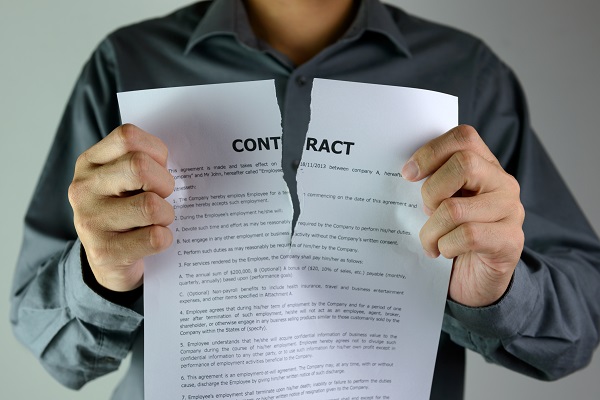
Repudiation occurs when a party unconditionally refuses to perform his obligations under the contract without justification. The breach results either when: (i) the party has failed to perform on the date that performance is due (actual breach) or (ii) the party indicates in some manner that he will not execute his obligations under the contract prior to the date that performance is expected. The latter circumstance is referred to as anticipatory repudiation. Repudiation can also occur after partial performance has taken place. The remedies for breach of contract vary depending on the nature of the default by one party.
In an anticipatory breach of contract, a party fails to perform an obligation under the contract before performance is due. The refusal to perform under the contract must be evidenced by words or actions that demonstrate the intention not to perform. The repudiation cannot be vague or conditioned upon other facts or events. However, when one party fails to carry out his obligations as a result of a mistake in law or fact, then the lack of performance is not treated as a repudiation.
There are several remedies for repudiation of a contract. The injured party may either accept the repudiation or continue performance under the contract. The claimant can accept the non-performance of the opposing party by changing his position on account of the repudiation. Alternatively, a party who has repudiated the contract can later withdraw his refusal to perform as long as the other party has not “materially” changed his position as a result of the repudiation.
In an anticipatory breach, damages for breach of contract are permitted as per usual to reimburse the injured party for resulting losses or damages. In this case, the plaintiff can recover the value of the contract had the contract been fully performed. The plaintiff may also attempt to recover future damages upon certain conditions. If the injured party rejects the repudiation, he can then sue to recover for damages when performance under the contract becomes due. The contract would then remain in operation for both parties and is subject to all the obligations created thereunder.
Contact Shane Coons at 949-333-0900 or visit his website at www.ShaneCoonsLaw.com to find out more about his practice.
